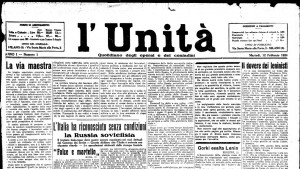This post (which I have been reluctant to make in the first place given my relative uneasiness this particular topic) is the final part of my series of posts on the “party question.” This post will examine, basing itself on the same general principles used in previous posts, the question of internal party organization and other questions related to the internal affairs of the party. The first four parts can be found at the following links: part 1, part 2, part 3, part 4.
From our prior investigations of the communist party, including its tasks and its nature, we can attempt to deduce a few general principles as to what an effective party organization must look like.
Given the nature and role of the communist party, membership must be restrictive. First of all, because the party is the formal organization of the most politically advanced sections of the class which has an understanding of the communist program and theory, and therefore membership in this party requires a certain prerequisite level of understanding and knowledge in order to maintain the theoretical soundness of the party and its program. Second of all, because the party as a living, active organization requires dedication to party activity and ability to pay dues. Therefore, only those who, first, agree not only with the main points of the communist program but also display an understanding of communist theory and, second, are able to dedicate a reasonable amount of time and money to the party’s activities should become members. This does not mean that the party could not and should not have a wide range of supporters outside the party, nor does it mean that these supporters cannot be members of organizations affiliated to the party or also sympathetic to it: however it does mean that, for the most part, the party will be a minority relative to the class at large.
Equally important as to who the members are is the unity of these members, and for this reason it is important to have pursue a centralist policy: the subordination of lower, smaller bodies to higher, larger bodies, although the precise configuration of the relation of local to central bodies, both of which make decisions about policy for their respective numbers, cannot be determined beforehand, as the precise level of local or regional autonomy cannot be deduced without respect to the differences between the general conditions and the unique, local conditions. Unity in action consists, in concrete terms, of the group making a decision and the individual members of the group agreeing to carry it out, irrespective of whether or not the individual personally supported it initially or not. Likewise, local bodies, which represent smaller numbers of members in a certain locale, ought to be subordinated to more central bodies which represent larger numbers of party members. This serves not only the purpose of unifying the outlook and action of the party, but also in subordinating the interests of local struggles to the struggle of the class as a whole1.
However, in order to maintain the representative nature of these various bodies, and thus the accompanying subordination of smaller numbers of members, represented by local and regional bodies, to the group as a whole, represented by the central body, it is necessary that they be actually be representative, and thus chosen democratically. In order for there to be a functional inner-party democracy, there needs to be the right to organize into factions: first of all because de facto factions form within a party regardless, and formalizing then and putting them into the open makes factional struggles less destructive and makes factions more accountable, and second of all to prevent useless splitting into separate organizations over non-fundamental differences.
However, it is important to point out that while these organizational principles (restrictive membership, centralism, and democracy) can be deduced from the general conditions of struggle under capitalist society, precise structures cannot: there is no magic formula that can be applied universally which receives the best results every time. It is impossible to deduce specific features from general conditions. For example, we cannot find out beforehand the precise relation of local to central bodies without knowing the context: where conditions are relatively homogeneous across a certain territory, there should be the strictest possible centralization in the hands of the central body; however, where conditions are sufficiently unique, a degree of local autonomy and initiative is called for in order to response to specific, local conditions. Likewise, the amount of democracy in the communist party depends on the context: in conditions of illegality the regular election of party officers is not always fully possible and the party may have to operate in secret.
Ultimately this concludes our analysis of the communist party: it is by no means perfect or even really complete, and in many respects is quite lacking. However, it was an attempt, as mentioned in the beginning, to give a treatment on the subject not based on moralistic prejudices but on the historical materialist method and class analysis, which, although conveniently ignored for the purposes of moralizing about “elitist” or “authoritarian” politics, form the proper basis for a socialist orientation.
- This process of centralization culminates in the international level — as the proletariat is an international class and capitalism is an international society, the proletariat must have a correspondingly international organization, for which the principles of unity laid out here obviously still apply. ▲











